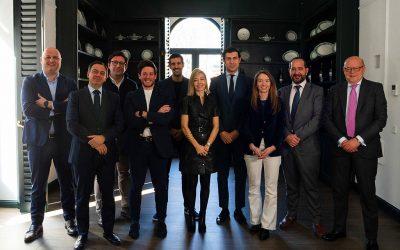MWCC participates in the debate “Mobility of the Future: innovation and regulation for a sustainable world”
MWCC participates in the debate “Mobility of the Future: innovation and regulation for a sustainable world”

MWCC has participated in the debate “Mobility of the Future: innovation and regulation for a sustainable world” organized by the entity Directivos y Gerentes.
Mobility has become a critical factor influencing productivity, efficiency and adaptability of organizations. Keeping abreast of the latest trends and taking advantage of the opportunities it offers is a strategic imperative for any organization that aspires to remain relevant and competitive.
With the aim of analyzing the challenges posed by mobility for companies in the current context, nine executives from leading companies in their business field met at the meeting “Challenges and opportunities of mobility: New solutions for a more connected world”, as part of the mobility cycle organized by Dir&Ge.
The executives agreed that mobility is a complex ecosystem that requires a solid regulatory framework that provides legal certainty to companies and, at the same time, has the necessary flexibility to adapt to a dynamic and constantly evolving environment. In this regard, they stressed the importance of meticulous planning, where mobility regulation advances in unison with the existing infrastructure, thus guaranteeing harmonious progress. They also stressed the importance of making society aware of the importance of adopting sustainable mobility measures, offering alternatives and infrastructure that make this a more attractive option. They also stressed the use of technology to optimize data management, which will make it possible to base technical decisions and create a long-term plan.
Companies face the constant challenge of optimizing their mobility processes to remain agile and responsive to market demands. However, the challenges it poses also drive opportunities to innovate and improve business efficiency in an interconnected world.
Mobility encompasses a broad spectrum that includes the virtual dimension and the ability to access information and resources from any location. In this sense, digital infrastructure and connectivity are key elements that influence a company’s ability to operate efficiently and competitively.
Ensuring sustainable progress in mobility implies having a regulation that adapts to the development of the existing infrastructure and that also raises awareness of its role among users.
The application of technology and innovation in data management allows mobility decisions to be made based on sound technical foundations to improve the overall efficiency of the mobility system and create a long-term plan.




